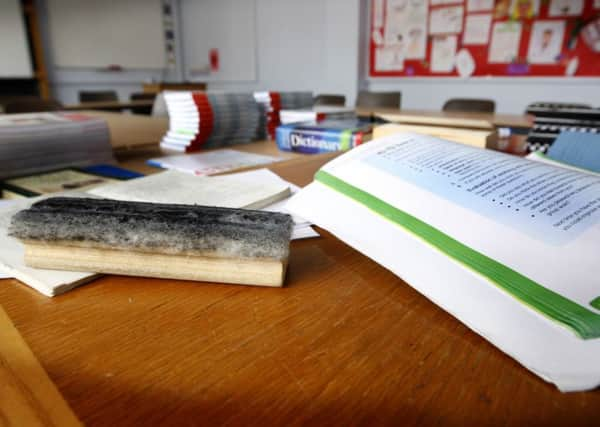‘Significant riskto safety of staffand students’


Significant risk to the safety and security of the young people and staff at the Maydown Centre and the Laurel Centre, which are on a shared site, as well as the Longtower Youth Centre, which all provide out-of-school provision for up to 40 young people that have social, emotional and behaviour difficulties and histories of non-attendance at school, has also been identified.
These are among the findings of an inspection of the three Foyle Education Other Than At School (EOTAS) centres conducted by the Education and Training Inspectorate (ETI) in September.
Advertisement
Hide AdAdvertisement
Hide AdWhilst provision was found to be good in some areas - the outreach support service provided by the Foyle EOTAS service was very effective, for example - and both staff and pupils are praised in the report, major failings were found elsewhere.
“The attendance of the Key Stage 4 young people in the Maydown and Longtower Centres requires significant improvement; in 2014 the average attendance in the Maydown Centre was 69 per cent whilst the average attendance at the Longtower Centre in 2014 was 56 per cent.
“Raising attendance in the Maydown and Longtower Centres is an issue for the service and is impacting on the standards being achieved by the young people,” the inspectors reported.
“The Laurel Centre’s data indicates that within the 2014 cohort of nine young people who attended, only three successfully re-integrated back to their school and have maintained their places with support.
Advertisement
Hide AdAdvertisement
Hide Ad“In the cohort of young people who attended in 2013 only three of the eight young people successfully re-integrated back to mainstream post-primary school,” they added.
Meanwhile, whilst teachers were found to be engaging pupils well and the young people responding well to their efforts, problems were identified with the curriculum offer and the contribution of local schools to the pupils’ educational development.
“The curriculum offered is not broad and balanced, nor is it matched appropriately to the individual needs and career aspirations of the young people,” the report states.
“There is no current access for the young people to study subjects in their own schools, or to engage in team sports, extra-curricular activities or e-learning opportunities.
Advertisement
Hide AdAdvertisement
Hide Ad“Urgent focus is required to develop collaboration with referring schools to enable their effective contribution to the education of their students in EOTAS and to extend the range of courses on offer, especially at GCSE level.
“It is key that the school, centre staff, parents, and young person meet to agree targets, programmes and relevant strategies prior to placement to maximise achievement,” the inspectors pointed out.
There is also much room for improvement in terms of the management of the centres.
“The EA has identified the need to work with the proposed reviewed management group to give urgent attention to reviewing the current model of provision in Key Stage 3; in particular, the focus on re-integrating the the young people back to their schools. In addition, the curriculum in KS4 needs to be developed in accordance with the Department of Education EOTAS Guidance (2014/24).”
Advertisement
Hide AdAdvertisement
Hide AdMost worrying perhaps is the unsuitability of the physical premises themselves, which do not provide a secure environment for the pupils or their teachers.
The Inspectors warned: “The premises in Maydown, The Laurel Centre and Longtower Youth Centre do not have effective secure electronic entry systems controlled by the staff. “The lack of an electronic controlled entry system creates a significant risk to the safety and security of the young people and staff and requires urgent remedial action.
“The accommodation presently used by the Longtower Centre is a public youth centre and has not been designed as a high quality education centre that facilitates the supervision and education of vulnerable young people.”
All of this must change.
The ETI will monitor and report on the organisation’s progress over the next 18 to 24 months during, which time there will be a follow-up inspection.